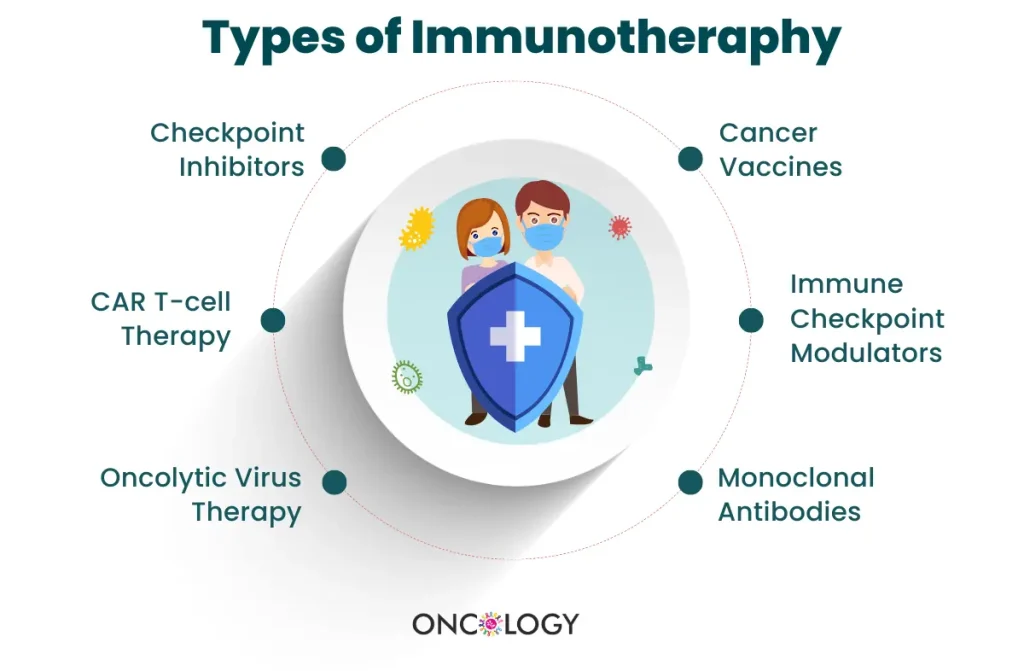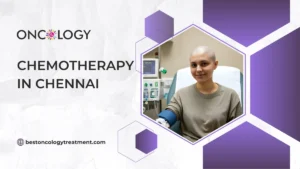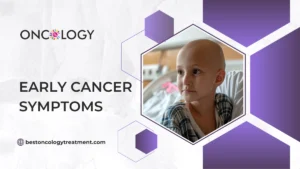Immunotherapy in Chennai has emerged as a groundbreaking treatment for cancer, offering hope to many patients who may not have found success with traditional therapies like chemotherapy or radiation. This advanced approach harnesses the power of the body’s immune system to fight cancer cells more effectively. Chennai, known for its top-tier healthcare facilities, is becoming a hub for such advanced treatments. Patients seeking the best immunotherapy in Chennai benefit from world-class care and cutting-edge technology, making the city a preferred destination for cancer care.
What is Immunotherapy?
Immunotherapy is a treatment method that uses substances made from living organisms to enhance or restore the immune system’s ability to combat diseases, particularly cancer. By targeting specific cancer cells, immunotherapy treatment in Chennai offers a more targeted and less invasive alternative to traditional therapies. Immunotherapy comes in various forms, including immune checkpoint inhibitors, cytokines, and cancer vaccines, all of which work to bolster the body’s natural defenses.

How Immunotherapy Works
Immunotherapy in Chennai works by enhancing the immune system’s natural ability to fight cancer. Unlike chemotherapy, which attacks both healthy and cancerous cells, immunotherapy specifically targets cancer cells, thereby reducing collateral damage to healthy cells. This targeted approach often results in fewer side effects and better overall outcomes for patients.
Types of Immunotherapy Available in Chennai
Immunotherapy treatment in Chennai encompasses several advanced approaches, each designed to bolster the immune system’s ability to combat cancer.
- Monoclonal Antibodies: Monoclonal antibodies are lab-created molecules that function like the immune system’s natural antibodies, targeting specific proteins on cancer cells to block their growth signals.
- Checkpoint Inhibitors: Checkpoint inhibitors prevent cancer cells from using certain molecules to evade the immune system. By blocking these checkpoints, the immune system can recognize and destroy cancer cells more effectively.
- CAR T-Cell Therapy: CAR T-cell therapy involves extracting T-cells from the patient’s blood, genetically modifying them to attack cancer cells, and reinfusing them into the patient. This personalized therapy has shown remarkable success in treating certain cancers.
- Cancer Vaccines: Cancer vaccines are designed to enhance the immune system’s ability to recognize and attack cancer cells, often using cancer cell antigens to stimulate an immune response.
- Adoptive Cell Transfer: Adoptive cell transfer involves modifying the patient’s immune cells in a lab to improve their cancer-fighting abilities before reinfusing them back into the patient.
- Immune System Modulators: Immune system modulators are drugs that enhance the immune system’s overall activity, helping it more effectively fight cancer. These can be used alone or in combination with other therapies.
- Immune Checkpoint Inhibitors: These drugs block proteins that prevent the immune system from attacking cancer cells. They help the immune system recognize and destroy these harmful cells.
- Cytokines: Cytokines boost the immune system by increasing its ability to fight cancer.
- Cancer Vaccines: Designed to prompt the immune system to recognize and attack specific cancer cells.
This comprehensive range of immunotherapy treatment in Chennai offers patients various options to tailor their cancer treatment effectively.
Cancers Treated with Immunotherapy
Immunotherapy has proven effective in treating a wide range of cancers, including:
- Melanoma: Immunotherapy has significantly improved outcomes for patients with advanced melanoma.
- Lung Cancer: Non-small cell lung cancer (NSCLC) patients have benefited from immunotherapy, especially when combined with chemotherapy.
- Bladder Cancer: Advanced bladder cancer can be effectively managed with immunotherapy.
- Head and Neck Cancer: Certain types of head and neck cancers respond well to immunotherapy.
- Kidney Cancer: Advanced kidney cancer patients have seen positive results from immunotherapy treatments.
- Hodgkin Lymphoma: Immunotherapy is approved for treating relapsed or treatment-resistant Hodgkin lymphoma.
- Liver Cancer: Immunotherapy shows promise in managing advanced liver cancer.
- Colorectal Cancer: Certain types of colorectal cancer, like MSI-H tumors, respond to immunotherapy.
- Breast Cancer: Research is ongoing, but immunotherapy shows potential for treating triple-negative breast cancer.
Finding the Best Immunotherapy in Chennai
When searching for the best immunotherapy treatment in Chennai, it is crucial to consider factors such as the expertise of the medical team, the availability of advanced technologies, and the overall reputation of the healthcare facility. Chennai is home to several renowned hospitals and cancer centers equipped with state-of-the-art immunotherapy treatments and experienced oncologists.
Procedures and Indications for Immunotherapy in Chennai
- Immunotherapy procedures in Chennai involve:
- Checkpoint inhibitors: Targeting proteins to enhance immune response against cancer cells.
- CAR-T cell therapy: Genetically modifying patient’s T-cells to recognize and destroy cancer cells.
- Monoclonal antibodies: Administering antibodies to target specific cancer antigens.
- Indications for immunotherapy include:
- Advanced melanoma
- Lung cancer
- Renal cell carcinoma
- Bladder cancer
- Hodgkin lymphoma
- Head and neck cancers
- Certain types of breast cancer
- Some gastrointestinal cancers
Immunotherapy Side Effects and Benefits
Benefits of Immunotherapy
Immunotherapy has emerged as a revolutionary approach to cancer treatment, offering several distinct benefits that contribute to its growing popularity and effectiveness:
- Targeted Treatment: Immunotherapy works by harnessing the body’s immune system to recognize and attack cancer cells specifically, sparing healthy cells from damage that can occur with traditional treatments like chemotherapy and radiation.
- Broad Applicability: It has shown promise across various cancer types, including melanoma, lung cancer, kidney cancer, and certain types of lymphomas, offering new hope to patients who may not respond well to conventional therapies.
- Long-lasting Responses: Unlike some traditional treatments that require ongoing cycles, immunotherapy can trigger long-lasting responses in some patients, potentially leading to prolonged periods of remission or even complete eradication of the cancer.
- Fewer Side Effects: While immunotherapy can have side effects, they are generally different from those associated with chemotherapy and radiation. Common side effects may include flu-like symptoms, rash, or autoimmune reactions, which are typically manageable and less severe than traditional treatment side effects.
- Combination Therapy Potential: Immunotherapy can be combined with other cancer treatments such as chemotherapy, radiation therapy, or targeted therapy, enhancing its effectiveness and providing more comprehensive treatment options for patients.
- Ongoing Research and Development: The field of immunotherapy is rapidly evolving, with ongoing research focused on enhancing its efficacy, understanding resistance mechanisms, and identifying biomarkers that can predict patient response.
- Improved Quality of Life: By targeting cancer cells specifically and minimizing damage to healthy tissues, immunotherapy can improve the quality of life for patients, allowing them to maintain normal activities and routines during treatment.
- Durable Response: Immunotherapy can provide long-lasting protection by training the immune system to recognize and fight cancer cells in the future.
- Fewer Side Effects: Compared to traditional treatments, the side effects of immunotherapy are generally milder and more manageable.
As research continues to expand and refine immunotherapy techniques, it holds promise as a cornerstone of modern oncology, offering new avenues for effective cancer treatment and management.
Side Effects of Immunotherapy
While immunotherapy in Chennai is generally well-tolerated, it can cause some side effects, including:
- Fatigue: Persistent tiredness and weakness.
- Skin Reactions: Rashes, itching, or inflammation.
- Flu-like Symptoms: Fever, chills, and muscle aches.
- Digestive Issues: Diarrhea, nausea, or reduced appetite.
- Breathing Problems: Shortness of breath or wheezing.
- Autoimmune Reactions: The immune system may attack healthy cells.
- Endocrine Disruption: Hormonal imbalances affecting the thyroid or adrenal glands.
- Organ Inflammation: Potential inflammation of organs like the liver or lungs.
Patients should promptly report any side effects to their healthcare providers to manage and mitigate these issues effectively.
Conclusion
Immunotherapy in Chennai is transforming cancer treatment by offering a more personalized and effective approach. Whether you’re seeking the best immunotherapy in Chennai or weighing the immunotherapy cost in Chennai, the city’s top hospitals are equipped to provide world-class care. While immunotherapy does have side effects, its benefits far outweigh the risks for many patients. By targeting cancer more precisely and promoting longer-lasting remission, immunotherapy offers a new avenue of hope for cancer patients.




